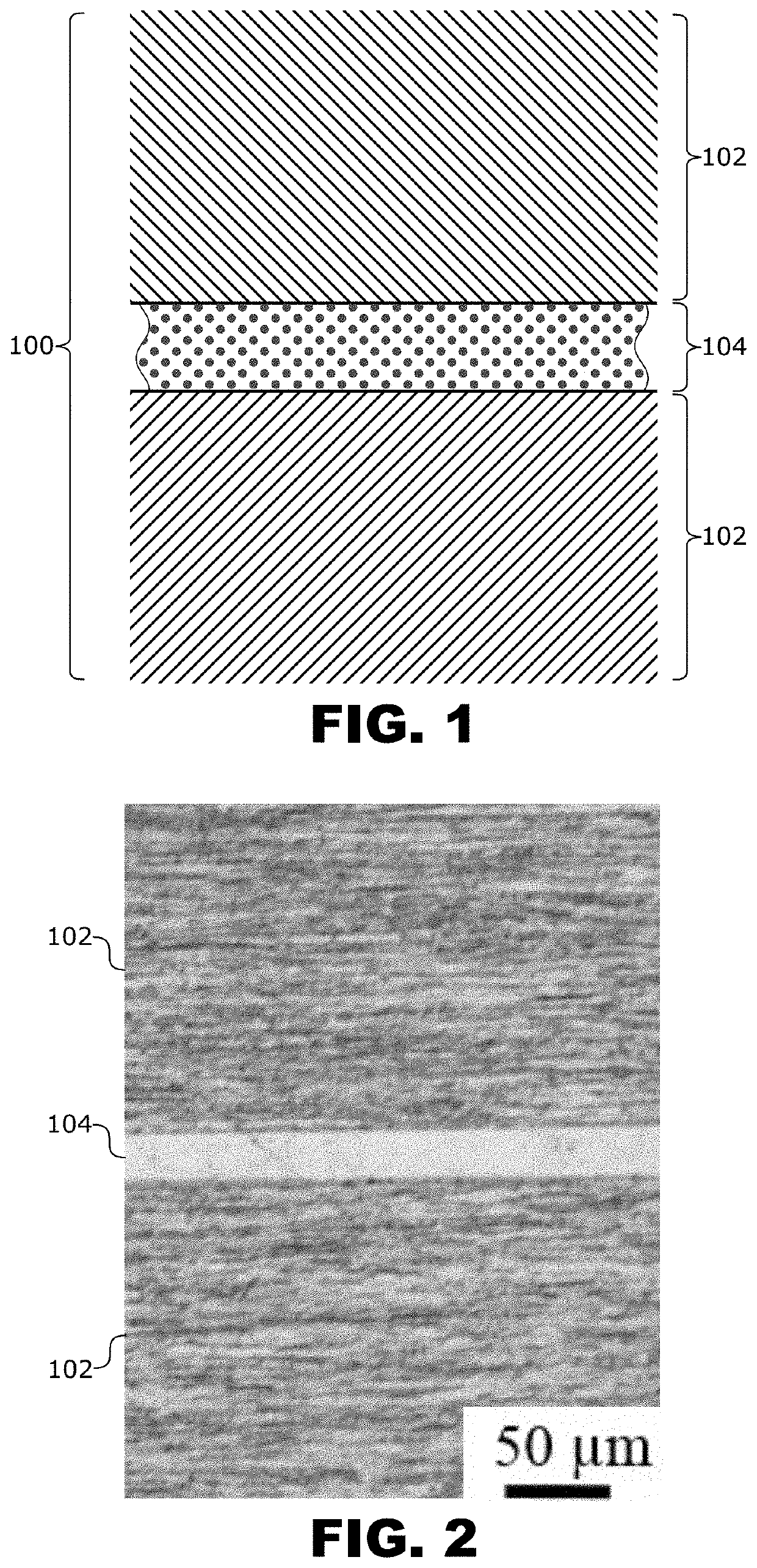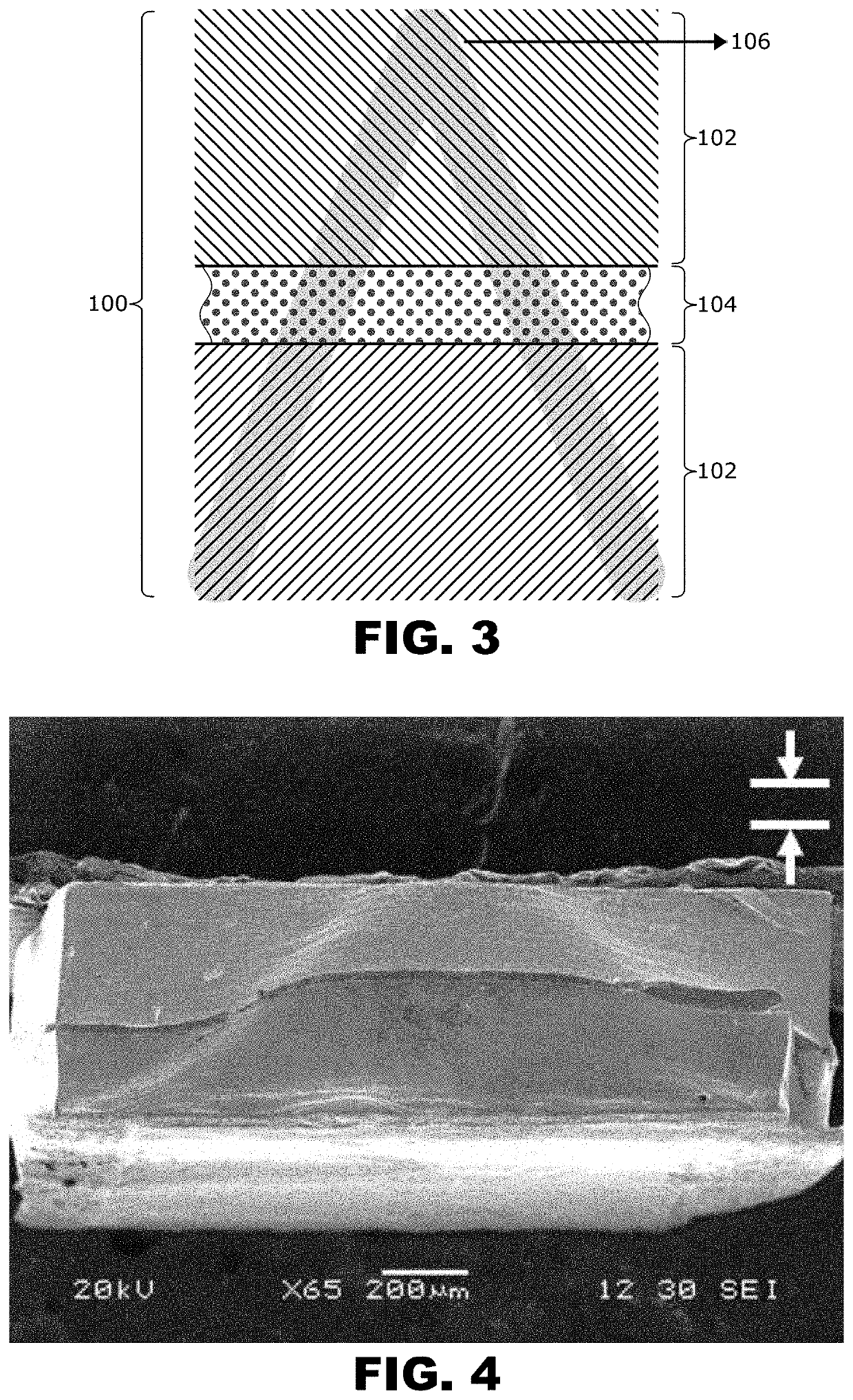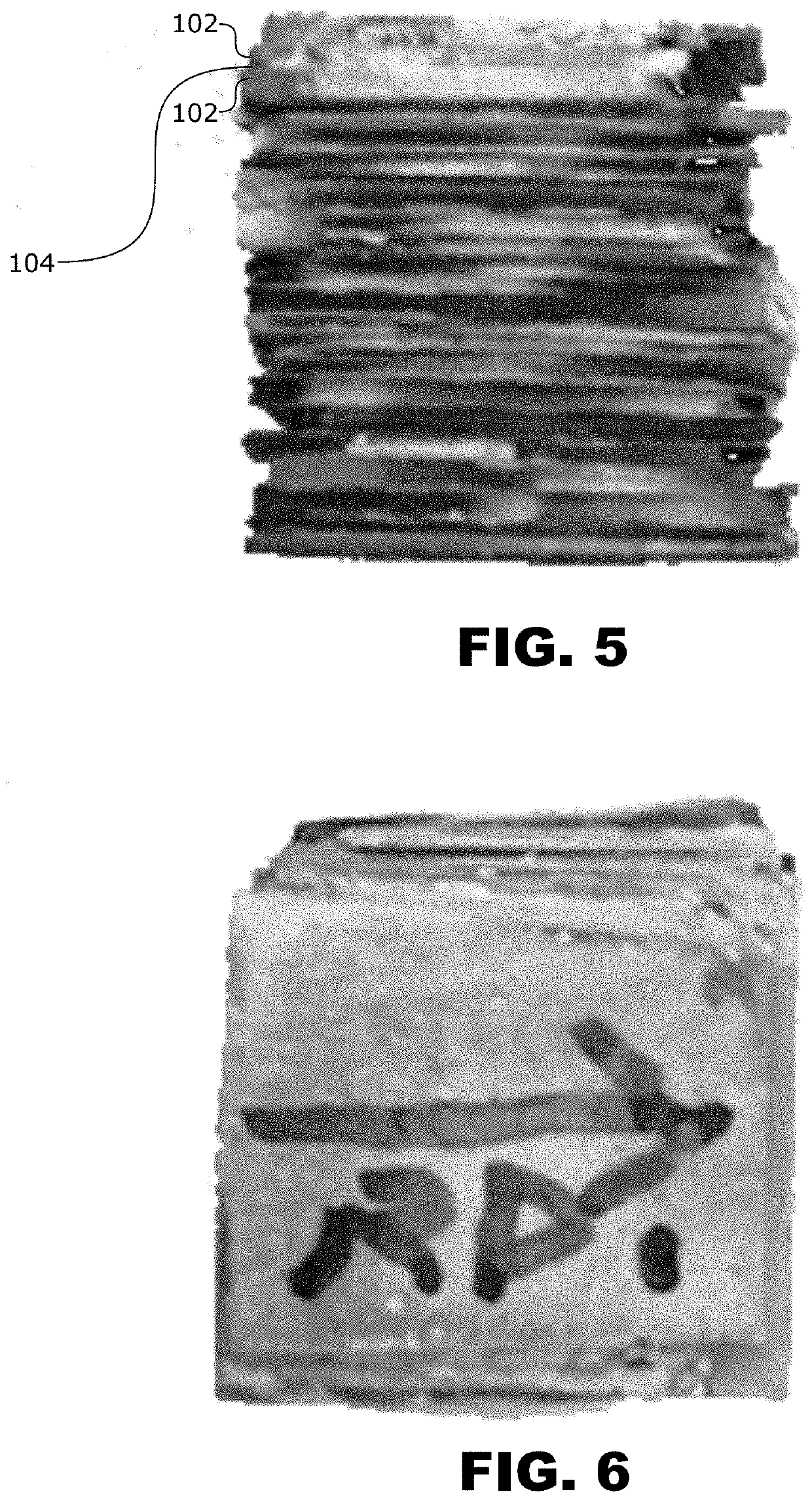Heterogeneously stacked multi layered metallic structures with adiabatic shear localization under uniaxial dynamic compression
a multi-layered, adiabatic shear localization technology, applied in the field of materials science, can solve the problems of toxicity, failure or other health defects of depleted uranium penetrator materials, and the target is destroyed, and achieves the effect of improving the respons
- Summary
- Abstract
- Description
- Claims
- Application Information
AI Technical Summary
Benefits of technology
Problems solved by technology
Method used
Image
Examples
Embodiment Construction
[0027]The present disclosure is directed to significantly improving the adiabatic shear banding susceptibility of pure body-centered-cubic (BCC) lattice structure metals as well as overcoming the physical dimension limitations. These improvements may be achieved by arranging interlayers between plasticly-deformed BCC or refractory metal material layers.
[0028]An underlying principle of kinetic energy penetrators is using kinetic energy—a function of the mass and velocity—to force a way through armor. Therefore, to be a good candidate for kinetic energy penetrator applications, a material should exhibit high mass density. For example, tungsten and tantalum are potential kinetic energy penetrator materials due to their high mass density of about 17-19 g / cm3. In general, all of the elements in the class of the refractory metals exhibit a sufficient mass density for use as a kinetic energy penetrator material.
[0029]Another key attribute of kinetic energy penetrators is “self-sharpening”....
PUM
| Property | Measurement | Unit |
|---|---|---|
| grain size | aaaaa | aaaaa |
| mass density | aaaaa | aaaaa |
| mass density | aaaaa | aaaaa |
Abstract
Description
Claims
Application Information
 Login to View More
Login to View More - R&D
- Intellectual Property
- Life Sciences
- Materials
- Tech Scout
- Unparalleled Data Quality
- Higher Quality Content
- 60% Fewer Hallucinations
Browse by: Latest US Patents, China's latest patents, Technical Efficacy Thesaurus, Application Domain, Technology Topic, Popular Technical Reports.
© 2025 PatSnap. All rights reserved.Legal|Privacy policy|Modern Slavery Act Transparency Statement|Sitemap|About US| Contact US: help@patsnap.com



